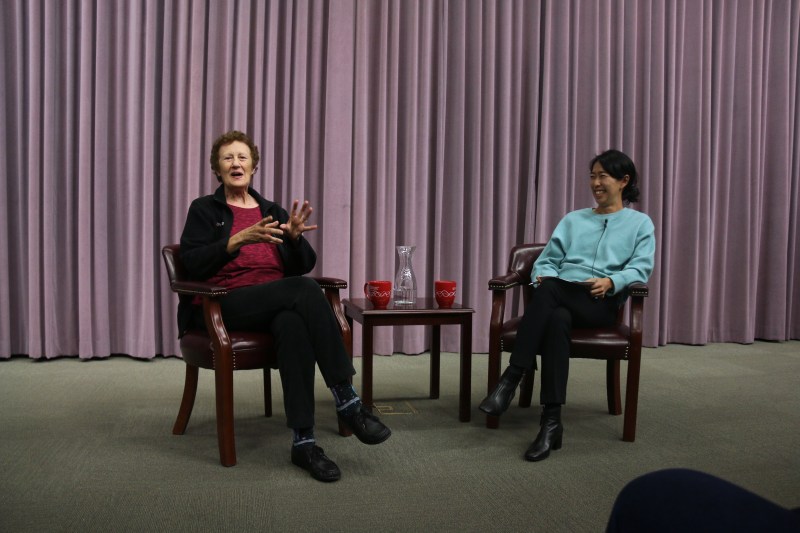“Unapologetic renegade” and “Stanford engineering hero” were two phrases used to introduce computer scientist and MIT professor Barbara Liskov Ph.D. ’72 to students in NVIDIA Auditorium on Wednesday. Management science and engineering lecturer Anne Miura-Ko said these words in describing Liskov, one of the first women to earn a doctorate in the field of computer science, who later went on to win awards for her pioneering work in designing programming languages.
A California native, Liskov was born in Los Angeles and attended UC Berkeley in 1961 where she earned her B.A. in mathematics. After leaving Berkeley, she applied to a graduate program at Princeton but was rejected, likely due to her gender, she said. This rejection led her into the arms of MITRE Corporation, a not-for-profit company that manages federally-funded research.
“At that time, programming was not a thing that women should be doing,” she said, pointing out that at that time, she only “knew that computers existed.”
After becoming more familiar with computers from her work with MITRE Corporation, she took a job at Harvard to work on language translation. In response to a question about whether the Princeton rejection was fortunate in hindsight, Liskov said it was “crucial” for her to go into the working environment at that time — “a door opened that she didn’t expect to see.”
Liskov then advised indecisive students in the audience to “find something you are good at and something that you like because if you don’t have both of those things you won’t be successful.” She added that without having explored the professional world, she would have most likely missed her introduction into the realm of computer science.
In 1964, Liskov decided to return to school, applying to Stanford, Berkeley and Harvard, but ended up choosing Stanford to pursue her degree. But Stanford was not what it is now, she said, adding that “Stanford didn’t even have a computer science department; it was just a program.”
Liskov was the first woman to get a Ph.D. in computer science from Stanford and as such, she was “very used to being the [only woman] in the class.” But she found Stanford to be a very supportive environment despite that lack of representation.
After graduating from Stanford, she led the design and implementation for CLU, a precursor to the Java language, and developed a particular definition of subtyping that became known as the Liskov substitution principle. Currently she leads a Programming Methodology Group at MIT. In 2008 Liskov was awarded an A.M. Turing Award from the Association of Computing Machinery, what some people call the “Nobel Prize of Computing.”
As far as the current trajectory of computers in the modern day goes, Liskov said that “the problems are what worry me more: fake news, job displacement and compartmentalization of communities that reinforce each other’s views.”
“Overall, I feel like we’re facing a difficult time, and people developing artificial intelligence should be thinking about these problems and working to counteract them,” she added.
Liskov also noted that the best way to find the right, most impactful projects to engage with is to “ask questions, and at some point you get very good at understanding what you don’t know instead of just knowing what you do. When you see a project that’s important, you do that.”
Contact Hannah Shelby at hshelby ‘at’ stanford.edu.
